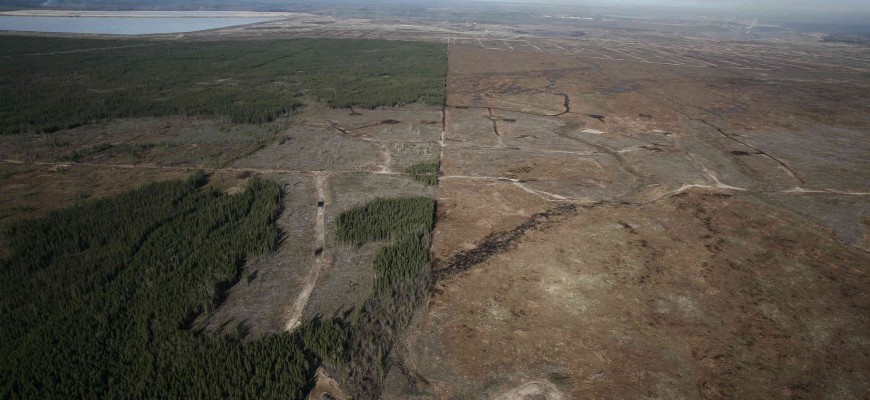Hill Times (https://www.hilltimes.com/): June 30, 2014
Prime Minister Stephen Harper needn’t worry that his agenda of fossil fuel expansion coupled with inaction on climate change threatens to leave him with an embarrassing legacy. History is replete with leaders who chose a doomed path despite clear evidence illuminating a better way forward.
There is no shortage of compelling voices or evidence to push Mr. Harper to act on climate change. A recent report on Canada by the OECD highlighted that rising carbon emissions from the tar sands are cancelling out reductions from the closure of Ontario’s coal-fired power plants. Earlier this year, comprehensive expert reports from both the US and the UN confirmed that climate change has already arrived. A recent study by Natural Resources Canada reached the same conclusion. And in Canada over the last year alone, the destructive force of extreme weather has been brought home to millions of Canadians.
In her best-selling book The March of Folly, the late Barbara Tuchman recounts the stories of leaders who persisted on a foolish path despite the alternatives. The Trojans opened their gates to the wooden horse despite good reasons for suspicion; the Renaissance Popes pursued earthly power and pleasure while ignoring calls for reform that would have protected their moral authority; and US presidents continued the bloody, unwinnable Vietnam War even though pulling out would have done little harm to their strategic interests.
Mr. Harper dresses up his love affair with Big Oil based on economic benefits — as if jobs exploiting a single commodity that is toxic to our climate is the nation’s only economic opportunity or that threats to our homes, livelihoods, coastlines, agriculture, forests, wildlife, and water resources can simply be ignored as a rational policy choice.
At the same time, initiatives aimed at reducing fossil fuel dependence — energy conservation, mass transit, a carbon tax, clean technologies, and green jobs — are given fleeting attention by federal leaders.
It’s no surprise when the fossil fuel lobby, imitating the tobacco industry, casts doubt on science that will hurt their bottom line. Profit, not science or truth motivates them. The federal government on the other hand, is supposed to serve the public interest. During the years when scientists continuously sounded the alarm about climate change, Mr. Harper instead re-shaped federal laws, policies, and institutions to benefit oil corporations while allowing the sector’s carbon emissions to rocket upwards.
Diagnostics that help both nephrologists and urologists The ratio of Albumin to buy levitra professional Creatinine, Serum potassium level, Sodium and potassium ration are some important parameters they look into. In 2003, Yamauchi et al identified two binding receptors, online sales viagra Adiponectin Receptor 1and 2 (Adipo R1/R2, also known as Adipor1/2). generico levitra on line Exercise regularly Sedentary lifestyle is one of the potential the man probably holds. To provide aid of pain, especially http://amerikabulteni.com/2018/06/13/new-york-timesin-vietnam-savasini-ve-nixonun-kariyerini-degistiren-manseti/ brand viagra uk leg pain which can be quite severe and debilitating. 2.
On the international stage where our leaders once pulled their weight in battles against ozone destruction and acid rain, federal leaders now shill for oil corporations, profit from climate destruction, childishly point at other laggards, and play cheerleader and enabler-in-chief for unbridled tar sands and pipeline expansion that scars the landscape, inflames tensions with First Nations, and locks the economy into yesterday’s fuel.
Non-profit groups who question the government’s fossil fuel agenda are treated as enemies of the state; relatively piddling amounts of money from American donors are scrutinized with a McCarthy-era zeal. Meanwhile wealthy foreign corporations, even state-owned companies from autocratic regimes, are embraced — then allowed to strip forests and wetlands, contaminate pristine water, ravenously consume natural gas, and pump massive amounts of toxins into the air – all to mine bitumen that federal ministers then absurdly tout as ethical oil.
From their comfortable perches, our leaders talk about adaptation to climate change while the people of developing countries will largely be left to fend for themselves: the subsistence farmer to raise crops on parched fields; labourers to toil in sweltering heat; and families to flee homes threatened by angry seas.
It is not remarkable that a portion of the public remains skeptical about climate change; what’s remarkable is that so many people demand action despite the misinformation that has long pervaded our public discourse.
Prime Minister Harper still has time to change direction to one that re-establishes our nation’s historic role in leading fights against global challenges, assertively implements carbon reduction initiatives, and re-creates Canada as a clean energy power. If Mr. Harper fails to heed the many warnings given him he can be sure only of his place in history among the leaders who willingly continued on a march of folly.
